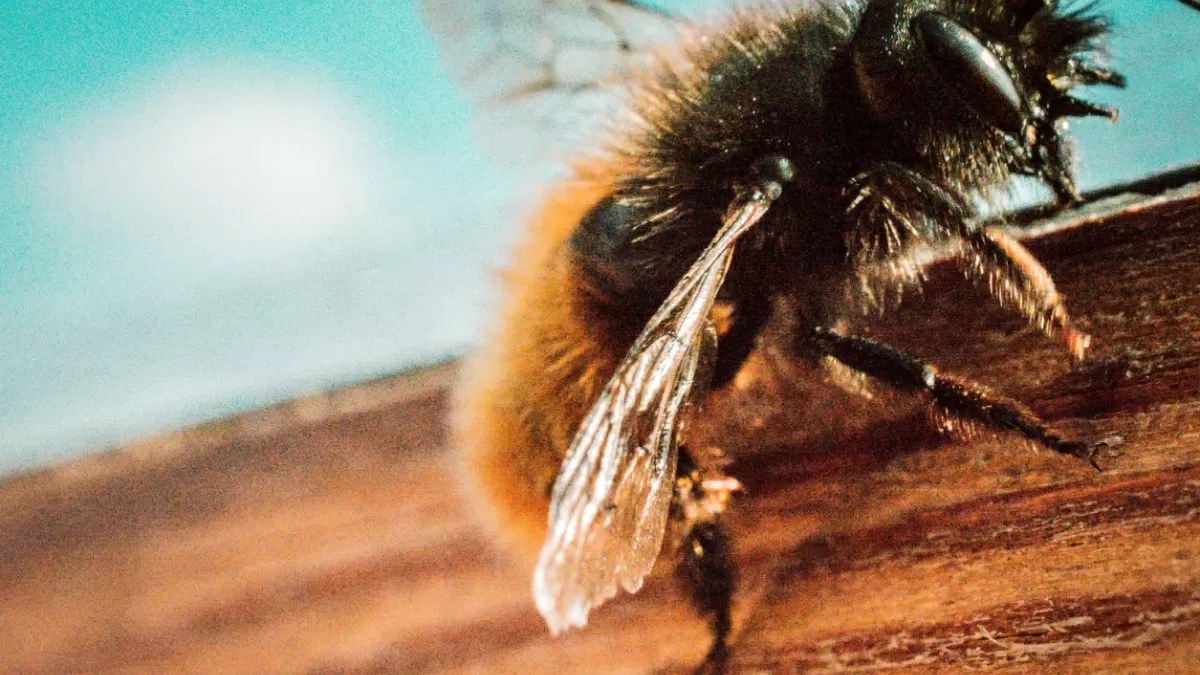Extreme heat waves are becoming a more frequent and intense threat to both humans and the environment. While we are aware of the dangers they pose to our health and well-being, a recent study published in the Proceedings of the Royal Society B has shed light on a lesser-known impact of heat waves – their effect on vital pollinators like bumble bees.
Bumble bees play a crucial role in our ecosystem, pollinating a wide variety of plants and crops. However, their ability to perform this important task is now at risk due to the increasing frequency and intensity of heat waves caused by climate change. The study, conducted by a team of researchers from the University of Bristol, has revealed that extreme heat waves can significantly impair bumble bees’ ability to detect the scents of flowers they depend on for food.
The researchers conducted experiments on bumble bees in a controlled environment, exposing them to different levels of heat. They found that when the temperature rose above 30 degrees Celsius, the bees’ ability to detect floral scents was significantly reduced. This is a cause for concern as bumble bees rely heavily on their sense of smell to locate and collect nectar and pollen from flowers.
The study also revealed that the heat not only affects the bees’ sense of smell but also their ability to learn and remember floral scents. This is a critical factor as bees need to remember the location and scent of flowers to efficiently forage for food. With extreme heat waves impairing their memory, bees may struggle to find food sources, leading to a decline in their population.
The impact of heat waves on bumble bees is not limited to their foraging abilities. The rise in temperature also affects the bees’ body temperature, making it difficult for them to regulate their internal temperature. This can lead to heat stress, dehydration, and even death.
The findings of this study raise serious concerns about the potential impact of climate change on bumble bees and the entire ecosystem. Bumble bees are not only important pollinators but also a vital part of the food chain. Their decline could have far-reaching consequences for other species, including humans.
So, what can we do to protect these essential pollinators? The first and most crucial step is to address the root cause of the problem – climate change. We must take urgent action to reduce our carbon footprint and mitigate the effects of global warming. This includes reducing our reliance on fossil fuels and transitioning to renewable energy sources.
In addition to addressing climate change, there are also steps we can take to help bumble bees cope with extreme heat waves. Planting a diverse range of native flowers and plants in our gardens and green spaces can provide bees with a variety of food sources and shelter. Providing a source of water, such as a shallow dish with pebbles, can also help bees stay hydrated during hot weather.
Furthermore, as individuals, we can also make a difference by supporting local beekeepers and buying organic produce. By doing so, we are not only supporting the beekeeping industry but also promoting sustainable farming practices that are beneficial for both bees and the environment.
It is clear that extreme heat waves are not only a threat to human health but also to the survival of vital pollinators like bumble bees. The findings of this study serve as a wake-up call for us to take immediate action to address climate change and protect these important creatures. Let us all do our part in creating a more sustainable and bee-friendly world for the benefit of all species.

